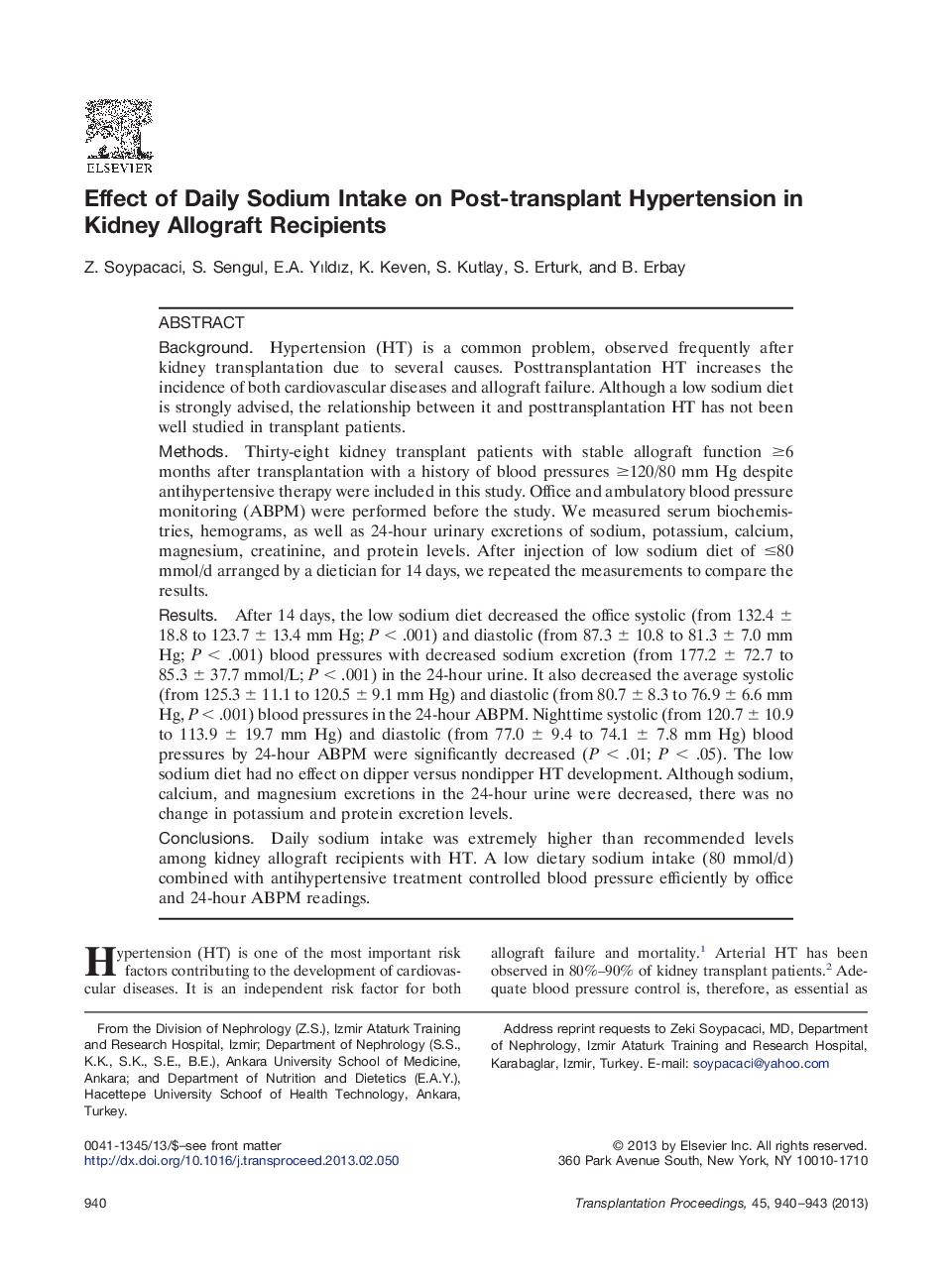| کد مقاله | کد نشریه | سال انتشار | مقاله انگلیسی | نسخه تمام متن |
|---|---|---|---|---|
| 6246548 | 1284504 | 2013 | 4 صفحه PDF | دانلود رایگان |
BackgroundHypertension (HT) is a common problem, observed frequently after kidney transplantation due to several causes. Posttransplantation HT increases the incidence of both cardiovascular diseases and allograft failure. Although a low sodium diet is strongly advised, the relationship between it and posttransplantation HT has not been well studied in transplant patients.MethodsThirty-eight kidney transplant patients with stable allograft function â¥6 months after transplantation with a history of blood pressures â¥120/80 mm Hg despite antihypertensive therapy were included in this study. Office and ambulatory blood pressure monitoring (ABPM) were performed before the study. We measured serum biochemistries, hemograms, as well as 24-hour urinary excretions of sodium, potassium, calcium, magnesium, creatinine, and protein levels. After injection of low sodium diet of â¤80 mmol/d arranged by a dietician for 14 days, we repeated the measurements to compare the results.ResultsAfter 14 days, the low sodium diet decreased the office systolic (from 132.4 ± 18.8 to 123.7 ± 13.4 mm Hg; P < .001) and diastolic (from 87.3 ± 10.8 to 81.3 ± 7.0 mm Hg; P < .001) blood pressures with decreased sodium excretion (from 177.2 ± 72.7 to 85.3 ± 37.7 mmol/L; P < .001) in the 24-hour urine. It also decreased the average systolic (from 125.3 ± 11.1 to 120.5 ± 9.1 mm Hg) and diastolic (from 80.7 ± 8.3 to 76.9 ± 6.6 mm Hg, P < .001) blood pressures in the 24-hour ABPM. Nighttime systolic (from 120.7 ± 10.9 to 113.9 ± 19.7 mm Hg) and diastolic (from 77.0 ± 9.4 to 74.1 ± 7.8 mm Hg) blood pressures by 24-hour ABPM were significantly decreased (P < .01; P < .05). The low sodium diet had no effect on dipper versus nondipper HT development. Although sodium, calcium, and magnesium excretions in the 24-hour urine were decreased, there was no change in potassium and protein excretion levels.ConclusionsDaily sodium intake was extremely higher than recommended levels among kidney allograft recipients with HT. A low dietary sodium intake (80 mmol/d) combined with antihypertensive treatment controlled blood pressure efficiently by office and 24-hour ABPM readings.
Journal: Transplantation Proceedings - Volume 45, Issue 3, April 2013, Pages 940-943
